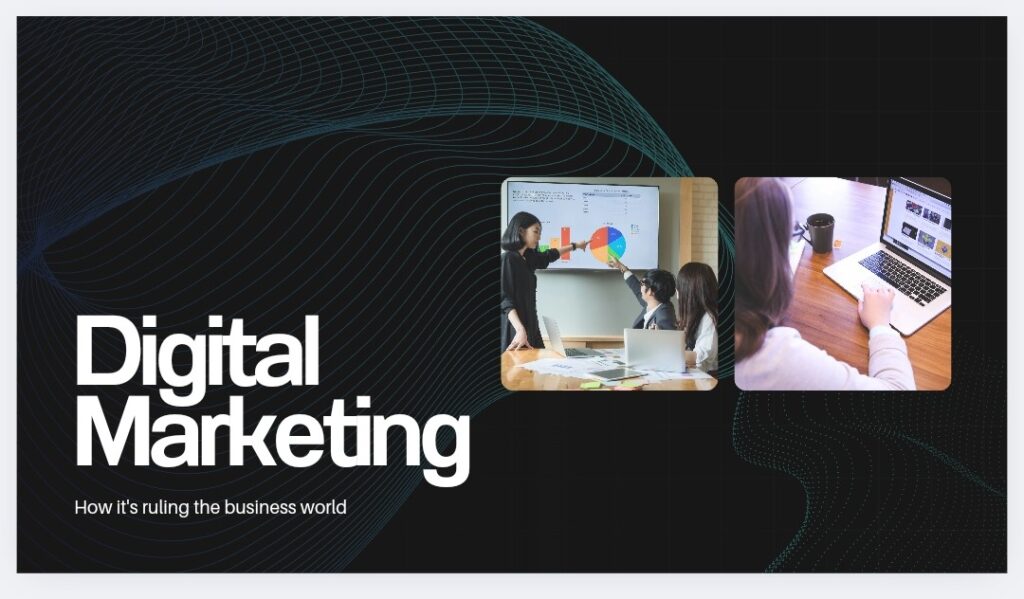
The term “Digital Marketing” explains itself very clearly. Digital means online and Marketing means promotion.Online promotion of any company, product and services is known as digital marketing.
In today’s modern era, everything is online. Shopping is online, education is online, businesses are online, then why should marketing remain offline. Digital marketing is a basic need for the development of every business.
What is digital marketing ?
Digital marketing is also known as online marketing. Online promotion of any product, brand company, website, service, business is called digital marketing.
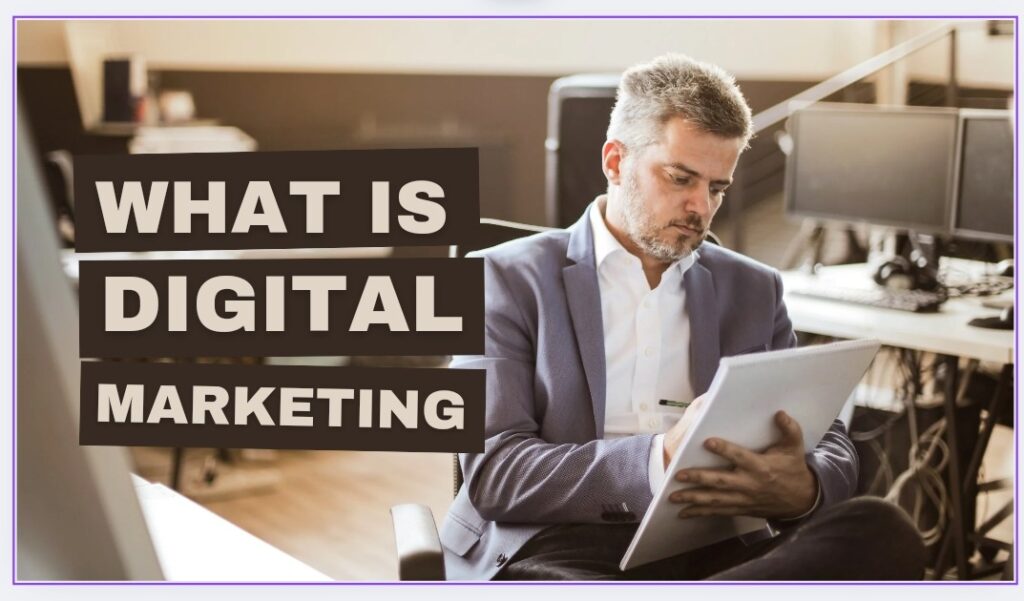
Digital marketing is a way to promote any product or service online through online medium. These online medium may include internet, mobile devices, social media platforms, webinars, search engines, online consumer communities, and other digital platforms.From buying groceries for home to studying, everything is happening online. So digital marketing is very important in today’s modern world.
Digital marketing is often defined as online marketing initiatives that appear on a computer, phone, tablet, or other device. It can take various forms, such as online video, display ads, search engine marketing, paid social ads, and social media posts.
These medium channels may include the internet, mobile devices, social media platforms, webinars, search engines, online consumer communities, and other digital platforms.
Comparison between Digital(online ) marketing and traditional (offline) marketing
For creating effective strategy of marketing we need to understand the difference between digital (online) and traditional (offline) marketing.
Before knowing the difference between online and offline marketing, we should know the definitions of both.You have already learned about digital marketing in the above heading, so let us understand the definition of offline marketing.
Traditional(Offline) Marketing
Traditional marketing refers to the traditional ways of promoting items and services to customers. This type of marketing has been utilized for decades and is based on offline channels to reach a large audience. Traditional marketing’s key qualities include its physical aspect, the ability to efficiently target a local population, and a one-way communication model in which companies broadcast their message to potential customers without providing immediate reaction.
Difference between digital and traditional marketing
Let us understand the difference between online and offline marketing
1.Audience Reach
Digital Marketing
Digital marketing is great at targeting people exactly.Through digital marketing we can target the related audience. For example, suppose I am launching a trading course and want to advertise it, then digital(online) marketing is the best option because through this we can target only those people who want to do trading or want to learn it.
Traditional Marketing
Traditional marketing strategies, such as newspaper advertising, are widely regarded as extremely reliable. Newspapers, in particular, are trusted sources of information, giving credibility to the advertisements they broadcast. Traditional marketing, on the other hand, often targets a larger population and has fewer targeting options. This means that, while the message may reach a large number of individuals, it may not necessarily reach the targeted audience.
2.Channels
Digital Marketing
In digital marketing, marketing is done through online(digital) channels like social media platforms, Websites ,SEO,ppc.
Traditional Marketing
In traditional marketing, advertising is done through traditional channels newspapers, TV, print media, billboards and pamphlets.
3.Engagement
Digital Marketing
Digital marketing offers a virtual experience that is more engaging. Online platforms provide interactive content such as films, quizzes, and social media interactions, which can engage customers more deeply and keep them interested for longer periods of time. The involvement frequently results in a more dynamic and immersive customer experience.
Traditional Marketing
In comparison,Traditional marketing provides a physical experience that is more focused. New-age internet firms, such as Swiggy and Boat, have effectively captured customer interest with newspaper jacket advertising and other inventive print forms. These physical advertisements leave a lasting impression and are frequently seen as more truthful due to their placement in reputable periodicals.
Advantages of digital marketing
These are the given advantages of digital marketing.
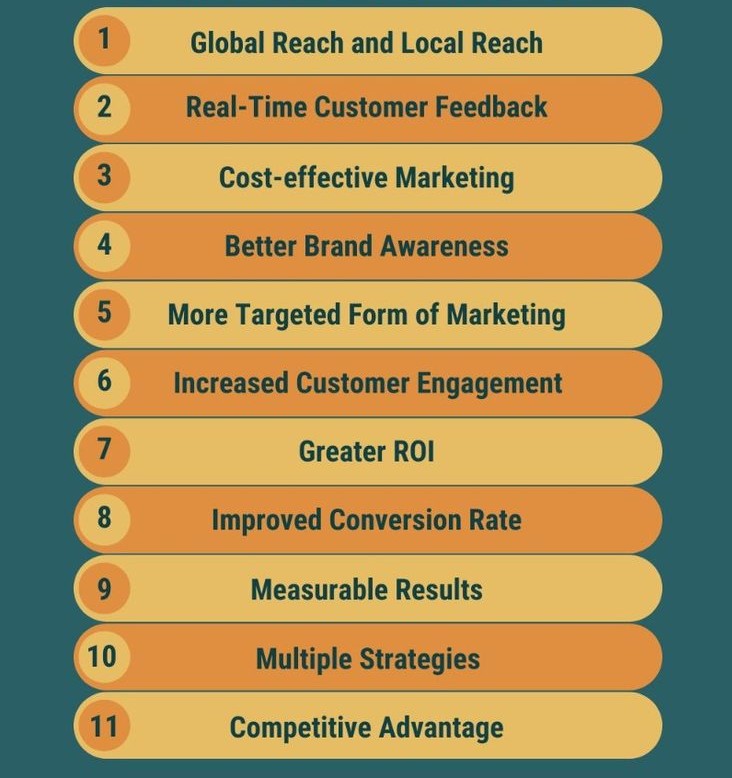
1.Targeted Audience
This is a biggest advantage of digital marketing because through digital marketing we can target the audience related to the product.
2.Cost Efficient
A well-planned and targeted digital marketing strategy can reach the relevant customers at a significantly lesser cost than traditional marketing strategies.
3.Global Reach
Digital marketing allows you to find new markets and trade globally in small investment.You can deliver and promote your product to any corner of the world.
4.Flexibility
Digital marketing provides a high level of flexibility. Businesses can adapt strategies, information, and content to changing economic circumstances and customer preferences.
5.Improved Customer Service
Businesses can deliver faster, more efficient customer service by using digital technologies such as chatbots and online help platforms, which increases customer happiness and loyalty.
6.Enhanced Brand Credibility
Consistent message, compelling content, and pleasant customer encounters may contribute to increased brand awareness and trust. Establishing a good internet presence can help a firm appear more credible and trustworthy to potential clients.
7.Real Time Customer Feedback
The benefits of digital marketing include real-time customer feedback. In reality, businesses may utilize social media live broadcasts, giveaways, surveys, and other tactics to communicate with customers in real time. As a result, digital marketing provides real-time insights on customer behavior and trends, enabling firms to provide a better customer experience and even improve product quality.
8.Competitive Advantage
One of the most major benefits of digital marketing is that it enables firms to collect customer information via websites and social media participation. Clearly, this aids in the analysis of client behavior and comments. Furthermore, it generates business insights that may be leveraged to improve product or service quality and obtain a competitive edge.
9.Improved Conversion Rate
Digital marketing may significantly boost conversion rates by targeting the correct audience with relevant messaging and personalized experiences, resulting in increased sales and revenue.
10.Greater ROI
Google insights indicate firms spend $1 on Google advertisements and generate $8 from search ads. Email marketing costs $1 but can generate up to $36 in revenue for enterprises. Similarly, HubSpot’s State of Marketing Report 2023 shows that blogging, influencer marketing, and social media shopping are the most effective strategies for organizations to produce ROI through digital marketing.
11.Mesurable Results
The ultimate purpose of digital marketing is to generate corporate revenue and growth. According to research, 38% of social media users make purchases using online platforms.
However, some customers are hesitant to shop online due to a lack of trust, inadequate product descriptions, and a negative brand reputation. More often than not, digital marketing can help firms overcome these obstacles and increase sales.
Types of digital marketing
There are many types of digital marketing,from all of them we will discuss here some important types of digital marketing.
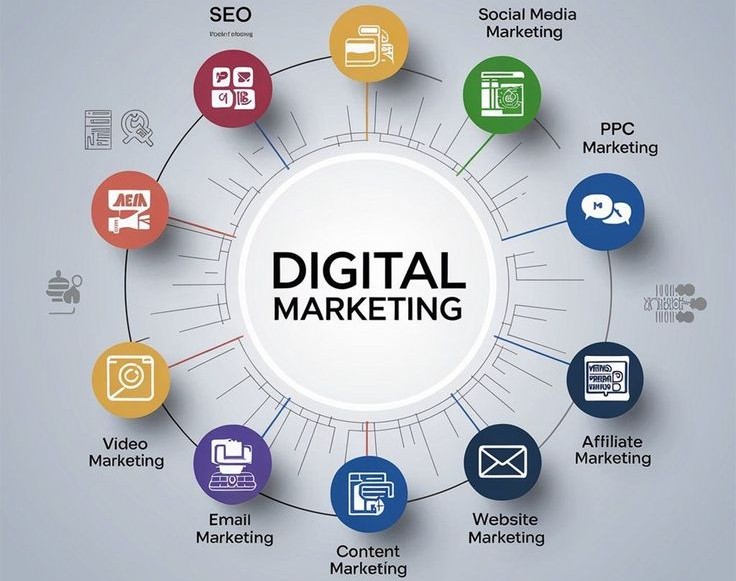
1.Social Media Marketing
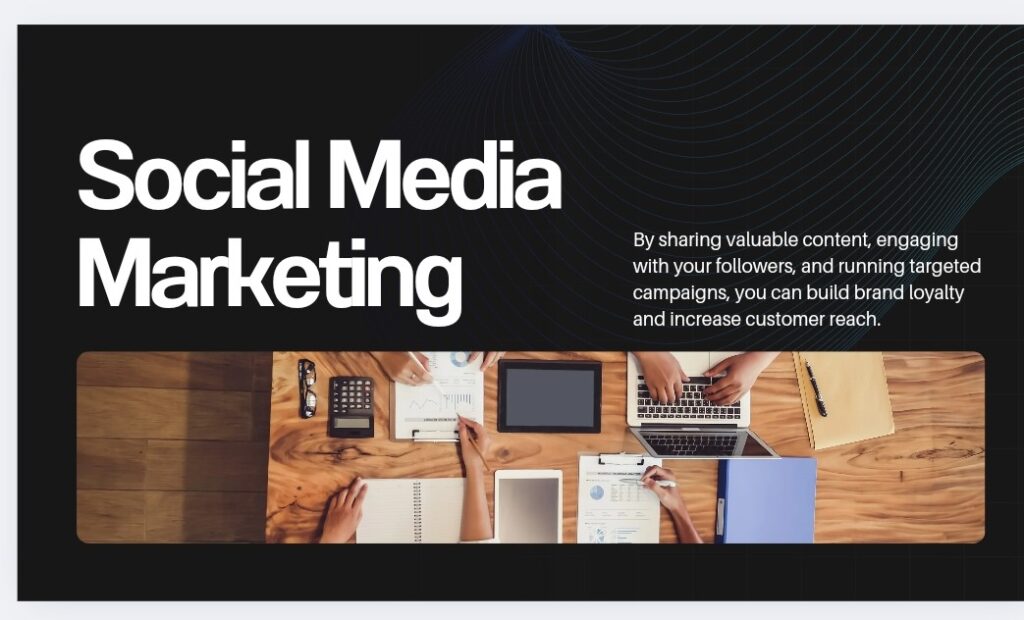
Social media marketing (SMM) is the process of promoting products and services through social media. It also promotes high levels of customer involvement and interaction.
Social media marketing can be organic, which means you develop content, post it to your feed, and expect your followers to see it. You rely on your followers to share it with their audience and show up in searches for the hashtags you mentioned in your caption. This is an efficient technique to improve your brand’s reputation, but it is limited in scope.
The main objectives of a social media marketing campaign are to increase brand awareness and trust. As you learn more about social media marketing, you’ll discover that it can be used to generate leads as well as for direct marketing and sales. Social media marketing includes both promoted posts and tweets.
- SMM can help you reach a large audience and gain new customers.
- Paid SMM can help you target your ideal customers.
- It can help you build a relationship with your existing customers.
2.Pay-Per-Click
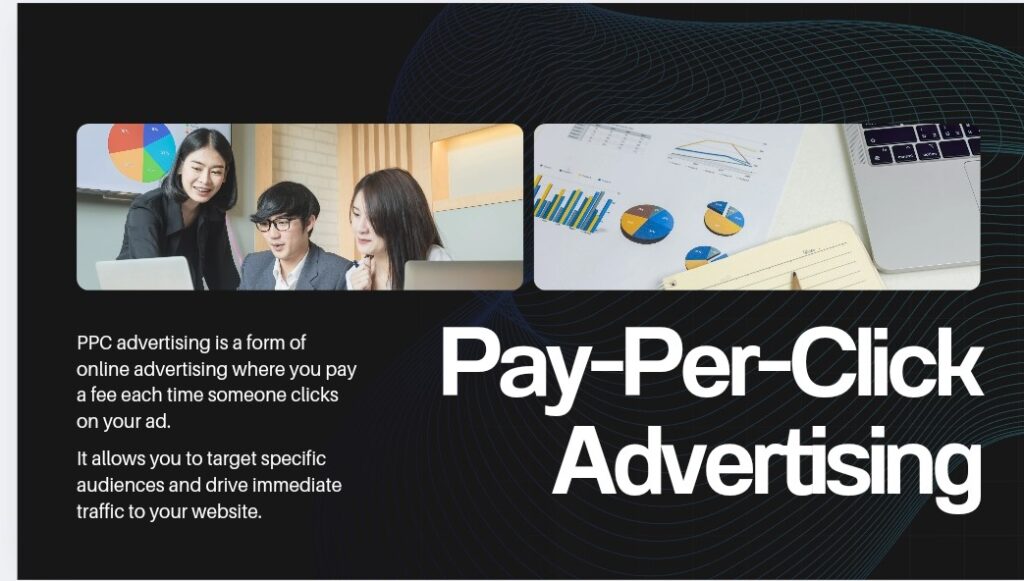
Pay-per-click marketing is a form of digital marketing in which you pay for each click on your advertisements. PPC is widely utilized for search engine advertising, with Google Ads being the most prevalent. It employs a bidding system in which you specify the maximum amount you are willing to pay for each click on your ad. PPC ads are often the first search results for relevant keywords.
3.Affiliate Marketing
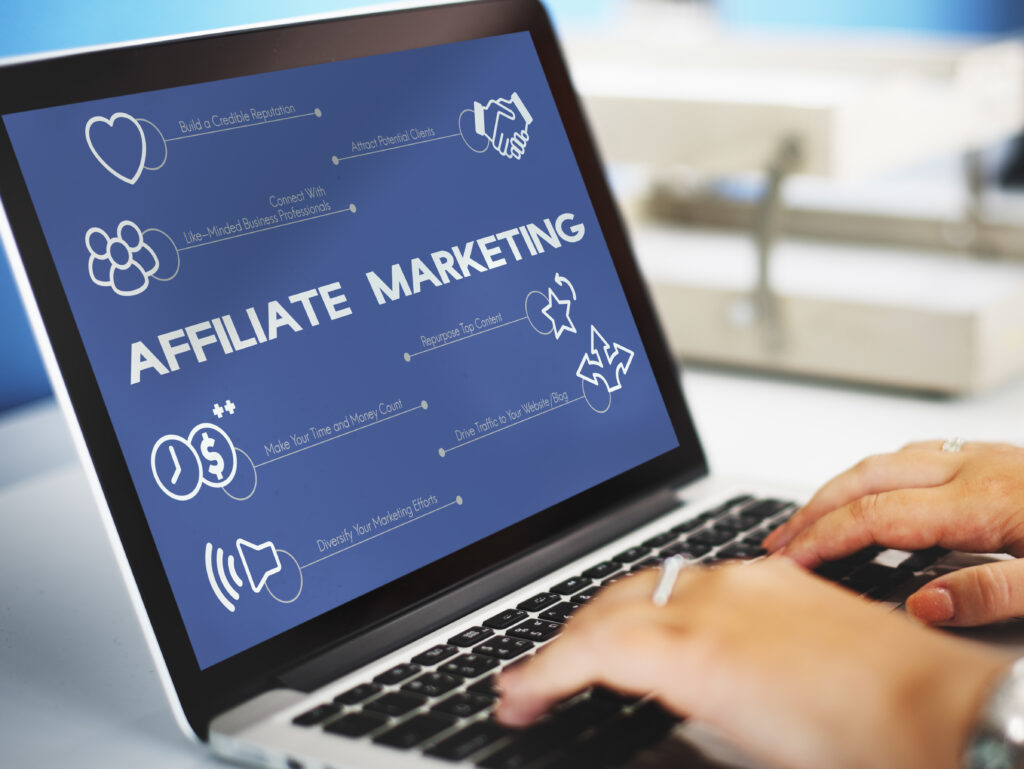
Affiliate marketing allows others to promote your business in exchange for a commission. These promoters will be given a referral number that will allow them to measure conversions, such as sales or sign-ups, and they will be paid a commission for each referral. Influencers, bloggers, and even ordinary people can all promote products.
It is a marketing method in which you can earn a commission by selling a product from another company. This allows you to promote another company’s goods and earn a fee without making any investment. You do not have to create a product. You are not responsible for customer service. You just help people in finding valuable items—and earn money when they purchase based on your recommendation.
- You only pay them for successful referrals, so there’s no upfront cost.
- Increased brand awareness and visibility.
4.Website Marketing
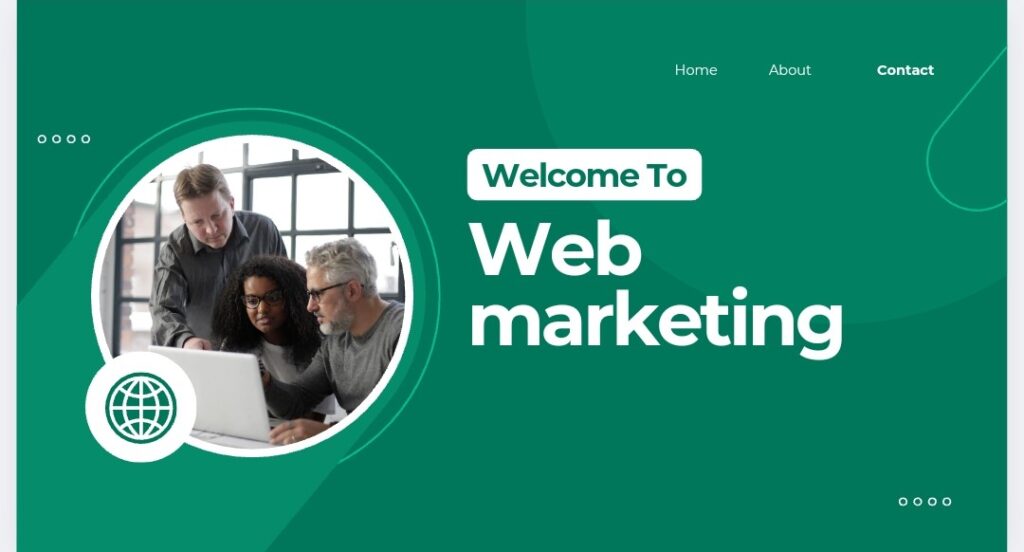
Companies frequently use their own website as the hub of their digital marketing efforts. The most efficient websites present the brand’s products and services in a clear and memorable manner. A website today must be fast-loading, mobile-friendly, and simple to use.
5.Content Marketing
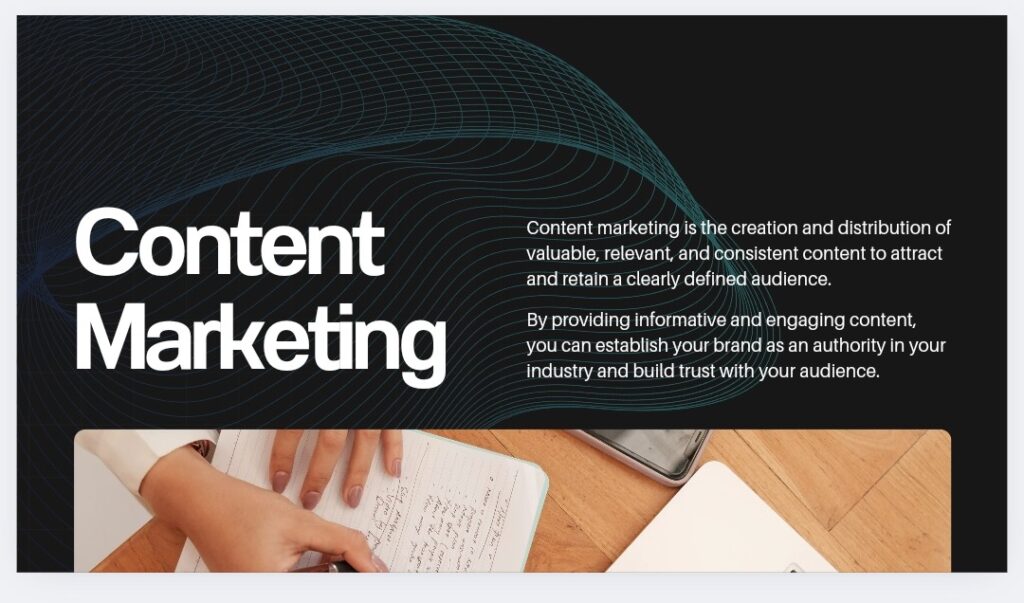
The purpose of content marketing is to reach out to potential customers by providing them with interesting written, visual, or video information.Content marketing aims to be more subtle than advertising, and the product or service being promoted may or may not be prominently displayed.
Content serves as the fuel for a variety of other digital marketing platforms, including social media and email marketing. When done correctly, those strategies become more successful.
It can help you connect with your target audience and position your brand as an authority in their sector.
Content marketing is heavily influenced by search engine optimization and can be an effective approach to increase organic traffic.
6.Email Marketing

Email marketing is the process of regularly delivering marketing and promotional information to clients’ email inboxes. It’s a common method for reaching out to customers with promotional and informational messages, particularly among retailers.
Consent and content personalization are critical components of email marketing. Because users must opt-in, you will only reach out to those who are interested in your message. However, persuading them to opt in isn’t always easy, so you’ll need to offer incentives such as a discount or a useful ebook.
7.Video Marketing
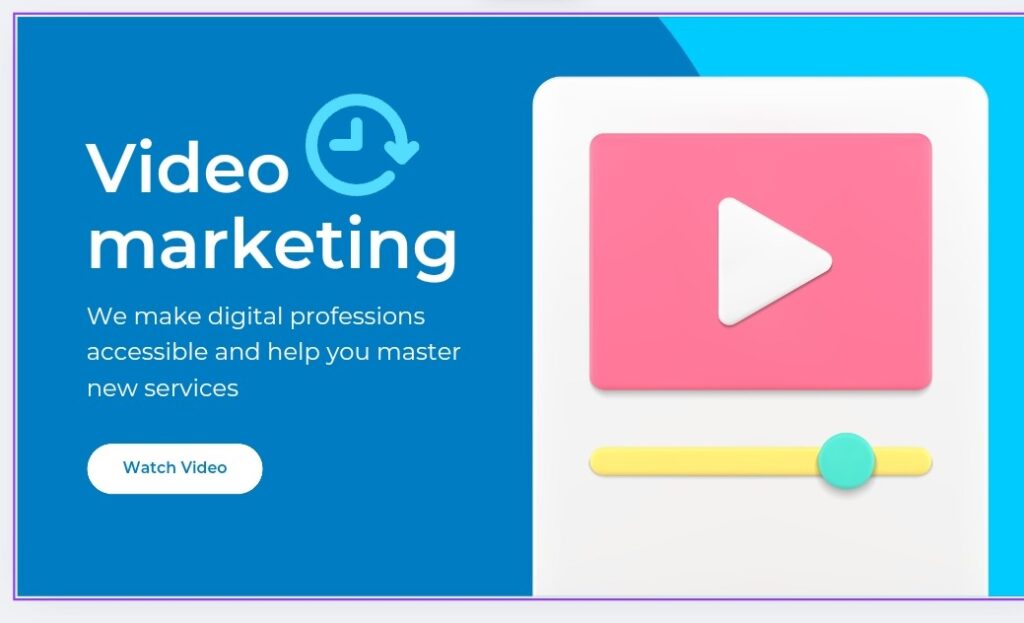
Many internet users utilize sites like YouTube to make purchasing decisions, learn how to do something, read a review, or simply relax. To launch a video marketing campaign, marketers can use one of various video marketing platforms, such as Facebook Videos, or Instagram, .
Companies achieve the greatest success with video when it is integrated into SEO, content marketing, and larger social media marketing initiatives.
8.SEO Marketing
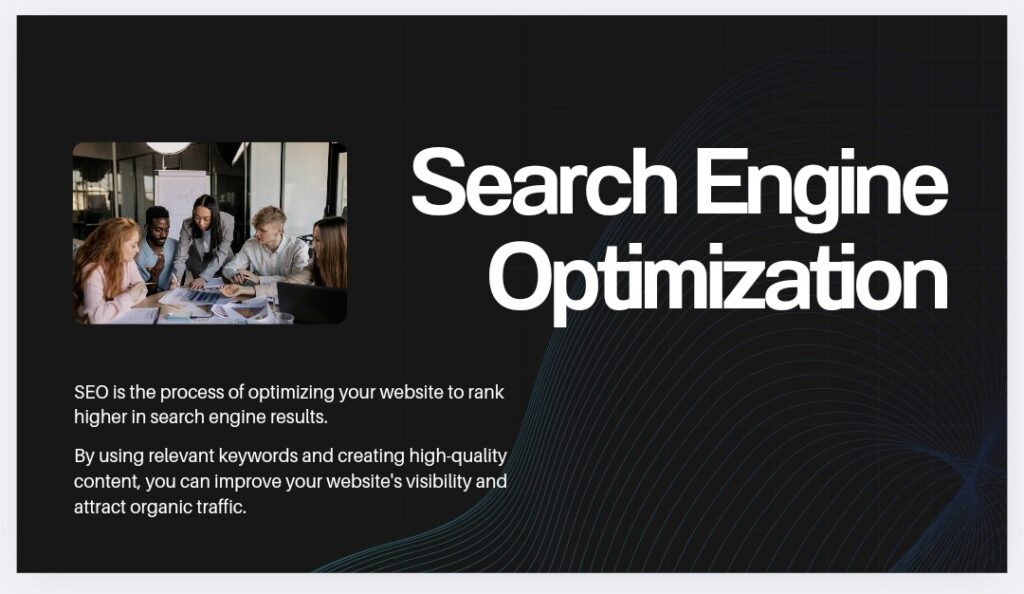
Search engine optimization (SEO)that rely on search engines such as Google and Bing. SEO is the act of improving website content so that it ranks higher in search engine result pages for certain, relevant keywords. This is significant because most people only glance at the first page of results. If they don’t find an answer on the first page, they’ll probably change their search term.
Digital marketing strategy
A digital marketing strategy is a plan that involves using many channels to increase your online contact with it. It should consider your target audience, strengths, shortcomings, and competitors. To develop an effective strategy, leverage data from across the business to inform and think.
This can help you determine which marketing channels to employ or test, your target demographic, and how to deliver your message or brand.
A digital marketing strategy is a plan of action for achieving a business goal using online marketing platforms. It focuses on explaining the what and why of what you want to accomplish. When designing your digital marketing plan, you should ask yourself the following questions:
- Research your goal
- Find out our objective
- Collect data about audience
- Find out time frame
- Create leads
Is digital marketing cost efficient than offline marketing?
Yes! Digital marketing is more cost effective than traditional marketing. Digital marketing provides reduced initial costs, the opportunity to target specific demographics, and more measurable results, allowing for better optimization and, ultimately, a larger ROI.
